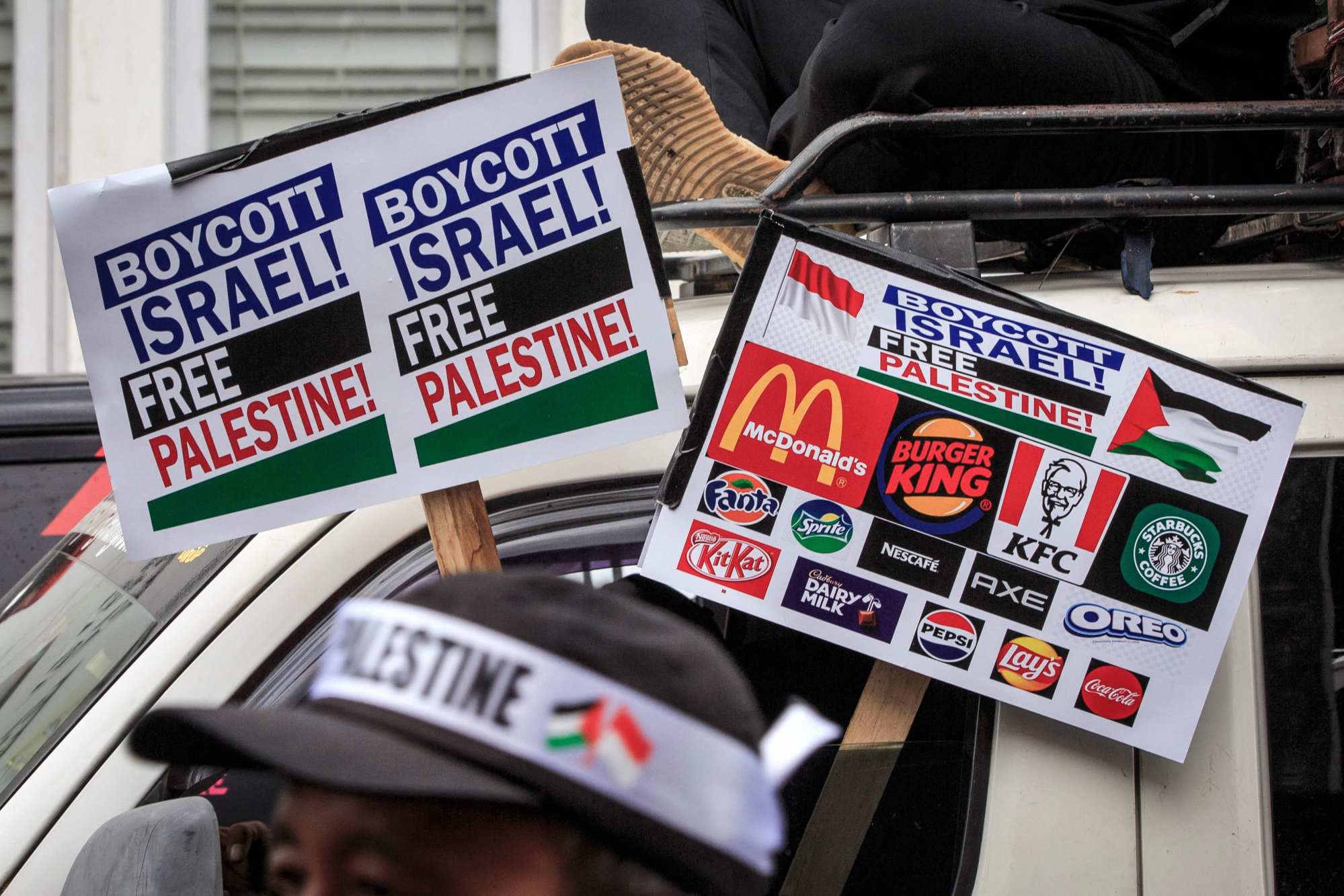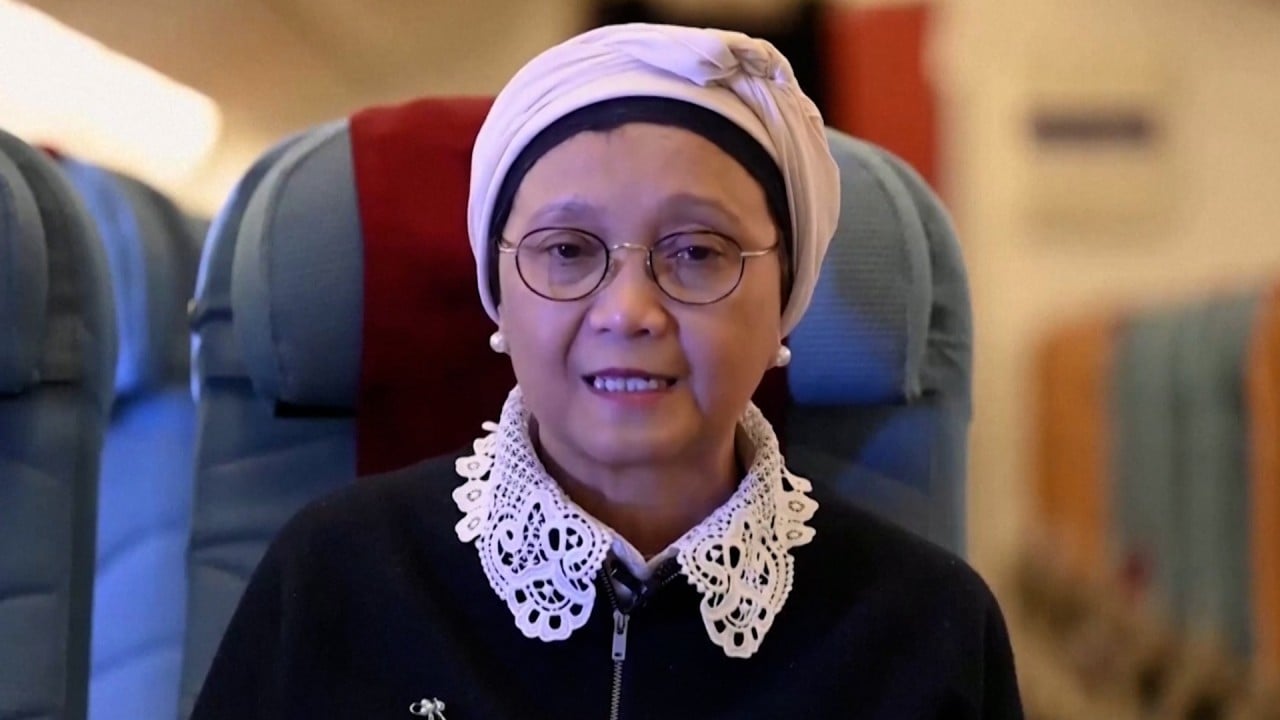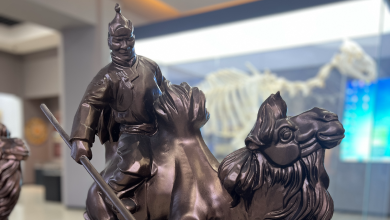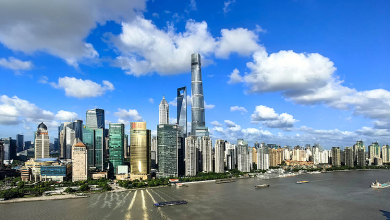Israel-Gaza war: Jews in Indonesia hide in ‘religious closet’ as antisemitism flares
[ad_1]
“Sadly, anti-Israel usually means anti-Jewish as well,” Enoch, in his early 30s, who requested to use an alias fearing a backlash, told This Week In Asia.
On the other side of the island in Depok, near Jakarta, Dian Apriani said she had heard anti-Jewish slogans chanted by some among the demonstrators at a massive November 5 pro-Palestine rally at Jakarta’s National Monument.
“Hundreds of thousands of people were there. Not all of them yelled anti-Jewish things, but they were clearly audible,” the 36-year-old Muslim said, adding empathically she did not condone antisemitism.
The rally was about standing up for Palestinian sovereignty, she said, not Muslims butting heads against Jews. But Dian may be a minority among Indonesians.
Even before the war, a public poll carried out in May 2022 by Saiful Mujani Research and Consulting claimed 51 per cent of Indonesian Muslims would object to having Jewish neighbours.
Malaysia will defy US pressure to label Hamas terrorists: PM Anwar
Malaysia will defy US pressure to label Hamas terrorists: PM Anwar
Indonesia and Israel do not have formal diplomatic relations, although trade between the two is managed through third-party countries like Singapore.
Israeli tourists who travel to Indonesian holiday destinations like Bali tend to be those with dual nationality who use their other passports to enter the country.
As anti-Israel – as well as antisemitism – rhetoric gains momentum in public spaces, Indonesians have overwhelmingly come out in support of the Palestinians, with many joining and advocating for a boycott of products deemed to be affiliated with Israel.
Boycotters have targeted big multinationals including McDonald’s, Starbucks and KFC, and consumer goods from the likes of Nestle and Unilever, accusing them of being Israeli collaborators.

The boycott list has been doing the rounds on Indonesian Facebook and TikTok for weeks now, naming 121 brands that it claims – without providing evidence – are affiliated with Israel.
Eager to defang the anger aimed at it, Indonesia’s McDonald’s licensee PT Rekso Nasional Food week donated 1.5 billion rupiah (US$95,000) to the relief efforts for Palestinians.
The watermelon emoji, symbolising the colours of the Palestinian flag, is also trending on Indonesian social media.
Indonesian clerics issue fatwa boycotting products linked to Israel and Zionism
Indonesian clerics issue fatwa boycotting products linked to Israel and Zionism
Upping the ante, Indonesia’s highest clerical body, the Council of Ulemas (MUI), announced a fatwa last Friday forbidding – or making it haram – for Muslims to buy products by parties supporting or abetting Israel’s war efforts.
Muslim cleric and pluralism activist Aan Anshori, who is affiliated with Nadhatul Ulema (NU), Indonesia’s largest Muslim organisation, however, said the fatwa was “poorly thought-out”.
“I support anyone’s right to take part in the boycott, of course, but the MUI’s ruling has muddied the debate and turned a political movement into a religious one,” he said.
Anshori said the fatwa could be misinterpreted by Indonesian Muslims as a licence for antisemitism.
In the wake of the fatwa, Indonesians on social media have posted content showing small shopkeepers and individuals chucking out blacklisted household products “in compliance with the MUI’s injunction”.
In northern Sulawesi, Rabbi Yaakov Baruch, who tends to Indonesia’s only legally recognised synagogue Shaar Hashamayim in Tondano, said Indonesian Jews had been watching the recent spike in antisemitism with considerable alarm.
North Sulawesi, a predominantly Christian part of Indonesia, has so far been the only region to allow the construction of a synagogue.
“I understand, as a result of the war [in Gaza], antisemitism is on the rise globally. I only hope our usual Indonesian sense of community will prove useful in avoiding acts of hatred against Jews here.”
Baruch, an active figure in interfaith activism, said he had counselled his congregation to “maintain their calm”.
“As a much misunderstood minority, we must take the initiative by showing our neighbours we have the goodwill to foster good relations,” he said.
To this end, he said his synagogue on November 3 convened an interfaith gathering to pray for the victims on both sides in the Gaza conflict and a swift end to the violence.
Singapore won’t let Israel-Gaza war divide multiracial society: Lawrence Wong
Singapore won’t let Israel-Gaza war divide multiracial society: Lawrence Wong
Indonesian Jews today make up a tiny minority numbering in their hundreds, scattered across the country and largely assuming double identities for fear of stigma and discrimination.
Most are descended from the thousands of Ashkenazi Dutch Jews and other Europeans who settled in the then-Dutch Indies at the onset of the 19th century and intermarried with Indonesians, while others trace their Sephardic roots to immigration from Iraq and elsewhere.
Irine Gayatri, researcher at the National Research and Innovation Agency in Jakarta, said Indonesian Jews must be afforded protection by the state from hate crime. “This is where the real test for our commitment to diversity lies; whether our law enforcers can act impartially and rise above identity politics.”
The war in Gaza continues to be a lightning rod for anger among Indonesians, with social media outrage spilling into real life.
Arif Andriawan, a resident of Tangerang city west of Jakarta, was arrested on November 4 over a viral Instagram reel in which he stated his support for Israel while branding those on Palestine’s side as “brainless”. Police later released him after he issued a public apology.
“Being Jewish is more of a liability than an asset now,” Enoch said, adding he had temporarily quit social media. “Can you blame me for keeping my head down and slinking back into my old religious closet?”
[ad_2]
Source link






